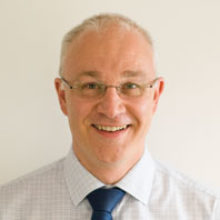From the Chief Executive
Issue: Life on a Changing Planet
11 May 2021 article

The COVID-19 pandemic is still a long way from over. Millions of people around the world still have the disease and many more will die. More still will suffer the longer-term effects of what has become known as long COVID. But we can see light at the end of the tunnel. The world has a number of safe and effective vaccines. For those who fall ill, we have better treatments. Preventative measures such as ventilation and social distancing are better understood and accepted. It is possible to imagine a world in which, although the SARS-CoV-2 virus has not gone away, it will no longer dominate our lives in the way it has for over a year.
To get us to this point, the overall response to the pandemic has been multifaceted. Economic and social measures, mental health support, logistical challenges and a great deal of common sense and neighbourliness. And at the heart of these responses has been the science. The many, many roles that microbiologists have played have shown more than ever how important our field is, and members of the Microbiology Society have been at the forefront of this vital work.
Some of these responses have been very obvious and direct frontline fighting of the virus. From the outset, the Society tried to help the UK’s testing laboratories, for example. We did not agree with every decision that was taken and we had many discussions with the people whose job was to develop and implement the testing strategy. But in the circumstances, there was no time to debate the perfect model. So, we helped identify qualified people who could ensure that the testing would go ahead as quickly and effectively as it possibly could and dozens of you responded.
Members of the Microbiology Society have also been involved in advising governments, both in the UK and in other countries. Some of this has been high profile and public, where members are on formal advisory bodies, but a lot of it has been behind the scenes. On one occasion, we took a phone call asking if we could identify experts in five different areas and get them on the phone to a senior government figure within the next two hours. We did it.
Perhaps most obviously, members of the Society have been at the forefront of keeping the public properly up to date about what we know and what we don’t know about the virus and its consequences. A big change in the last two decades has been the media’s insatiable appetite for a range of expert voices who can speak directly to the public, answering their questions clearly and authoritatively, listening to their concerns, addressing them where we know the answers and being honest when we don’t.
And of course, behind all of this is the research that generates this knowledge. The Microbiology Society’s SARS-CoV-2 workshop brought together people working on the virus, many of them new to coronaviruses and some of them new to virology. As well as forging links and sharing knowledge, it gave researchers access to one another’s resources and expertise to advance the field. Much of that work has been published in our journals, including work on the human body’s immune response to coronaviruses, interesting case studies of individual patients, genetics of how the virus suppresses host genes, assessments of detection techniques and a study of the model of acute respiratory infection.
On the Society’s website, there is a hub that brings together the rich and varied contributions and responses that members of the Microbiology Society have made to this pandemic, the biggest global experience shared by billions of people around the world for many decades (microb.io/3m8FOM7).
Such a collection of material can never be complete and if there are contributions that you would like to see included, let us know. But it can give a sense of the vast, wide and deep contribution that our community has made to fight the pandemic, of which you, the members of the Society, can be extremely proud.
Peter Cotgreave
Chief Executive
